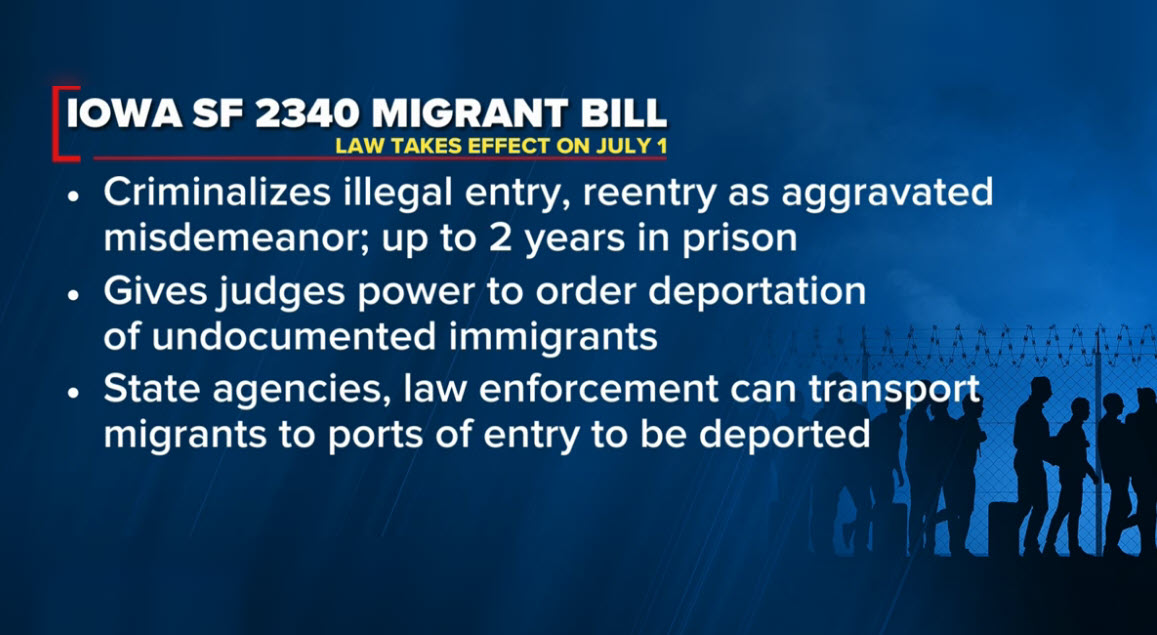In a move that has sparked intense debate and drawn federal attention, Iowa has passed a new law that makes illegal immigration a state crime. Signed into law by Republican Governor Kim Reynolds, the legislation grants state officers the authority to arrest migrants who have previously faced deportation. This development comes amidst ongoing national discussions and policy disputes regarding immigration and border security.
The newly enacted law in Iowa reflects a growing trend among conservative-leaning states to take a more aggressive stance on illegal immigration. Governor Reynolds has been vocal in her criticism of the Biden administration’s handling of border security, citing concerns about drug trafficking and human smuggling activities that she believes have not been adequately addressed at the federal level.
This Iowa law bears similarities to a Texas statute that is currently facing federal scrutiny over its constitutionality. The legal landscape surrounding state-level immigration laws has become increasingly complex, with questions arising about the extent of states’ authority in matters traditionally handled by federal agencies.
Governor Reynolds defended the law, emphasizing that it is not the first action Iowa has taken regarding illegal immigration. Her administration’s stance reflects broader sentiments among many Republican leaders who argue for stricter enforcement measures and more comprehensive strategies to address immigration challenges.
The passage of this law has reignited debates about states’ rights, federalism, and the appropriate role of state governments in immigration enforcement. Proponents of the law argue that it is necessary to protect state borders and uphold the rule of law, while critics raise concerns about potential civil rights violations and the impact on migrant communities.
As Iowa implements this new law, its repercussions are expected to resonate beyond state borders, shaping discussions on immigration policy at both the state and national levels.



